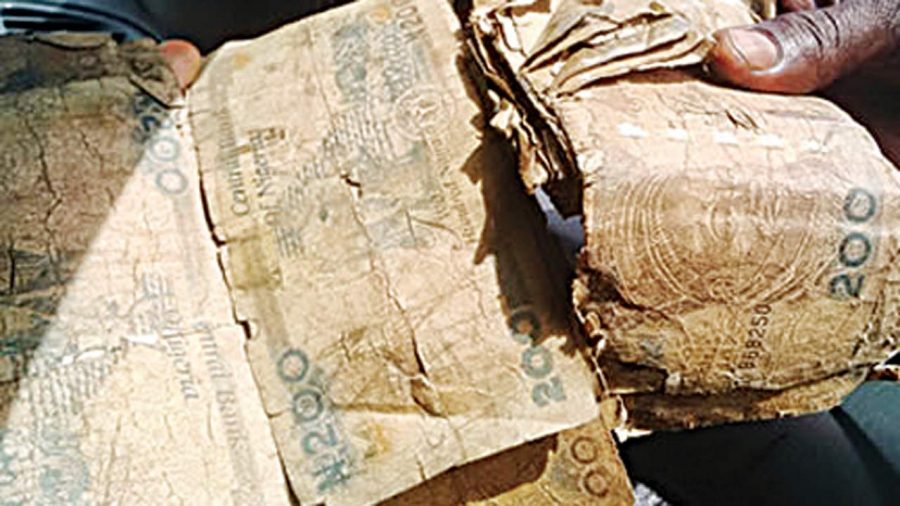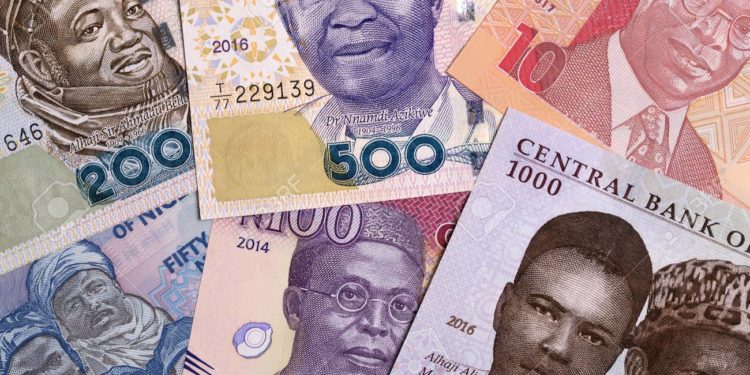The Central Bank of Nigeria (CBN) has introduced the clean note policy to put an end to the circulation of mutilated, defaced, and unfit naira notes. This information is contained in the Clean Note Policy Document which was released by the apex bank, detailing several sanctions to be meted to defaulting banks and the general public.
Note that the Nigerian Currency Structure comprises of eight banknotes and three coin
denominations in circulation which are: the N1000, N500, N200, N100, N50, N20,
N10, and N5 banknotes, as well as N2, N1, and 50k coins.
According to the CBN, the Clean Note Policy aims at ensuring that the banknotes in circulation are of high quality, in order to guarantee public confidence in the naira.
Earlier Developments: A large proportion of the notes in circulation in Nigeria are dirty, mutilated, and unfit for ATMs and over-the-counter payments. Over the years, there have been increasing numbers of dirty and unfit currencies in circulation, a situation that has become a source of concern to Nigerians.
The recurring decimal of an increasing amount of dirty and mutilated currencies has also elicited widespread criticism of both commercial banks and the Central Bank of Nigeria. On several occasions, there have been reported cases of dirty and unfit currencies being issued by Deposits Money Banks (DMBs).
A bank customer and lawyer reportedly described the alarming rate of dirty notes in circulation as embarrassing. According to the customer:
“I observe that in spite of arrest and subsequent prosecution of the culprits, there is still a cartel in CBN and commercial banks, which make brisk business recycling old naira notes meant for destruction”
CBN and banks blame each other: Meanwhile, both the CBN and deposit money banks (DMBs) have disappointingly traded blames over who is responsible for mutilated currencies in circulation. The CBN has blamed DMBs for deliberately mixing unfit and new notes available in circulation, and re-circulating dirty/unfit currencies instead of sorting out the bad ones and returning them to CBN.
However, the DMBs have also that the claimed that CBN’s delay to credits their accounts with cash deposited by them, couple with huge cash handling/sorting costs by the apex, are some of the major contributory factors to the problem.
A look at CBN’s statutory obligations on clean notes: Among other statutory obligations of the CBN is to ensure an adequate supply of clean banknotes to facilitate seamless payment and settlement of transactions by the public, Government, and banks.
“Section 2 of the CBN Act, 2007 vests the issuance of legal tender currency on the Central Bank of Nigeria (CBN). The task entails design (including security features), production, and distribution of newly printed notes and fit notes as well as replacement of unfit banknotes which are destroyed or older series withdrawn from circulation.”

The CBN stated that despite the prevalence of electronic forms of transactions,
cash remains “king” for day to day economic transactions. This is because Nigerians still prefer to use cash to payments, especially where there are no digital payment platforms.
About the CBN’s Clean Note Policy: According to the CBN, the Clean Note Policy is aimed at ensuring that the banknotes in circulation are clean and of high quality.
It entails a spectrum of diverse currency management activities geared towards the efficient circulation of premium quality banknotes and withdrawal of unfit/soiled banknotes, to guarantee public confidence and usage of the naira banknotes as a medium of exchange.
“This policy is intended to be used by the public and major cash handlers such as DMBs, Micro Finance Banks, third party service providers, etc.”
Note that the policy will remain open for future amendments in tandem with emerging currency management issues.
CBN takes the center stage: The apex bank stated in its clean note policy document that in order to enhance the availability of clean notes and effect expeditious withdrawal of dirty notes from circulation, DMBs and CPCs shall now classify their deposits into fit and unfit notes. According to the CBN:
“An unfit banknote refers to a genuine banknote that is no longer fit for circulation in accordance with the quality standard set by the Central Bank of Nigeria.”
Re-Circulation of Banknotes and Penalty to defaulter: CBN stated that to ensure that the banknotes in circulation are clean and of good quality, DMBs shall ensure that they process their banknotes using registered processing companies and classify them into fit and unfit.
“a penal charge of N12,000 per box, or any amount determined by the Management of the Bank, shall apply for the deposit of unsorted banknotes. In addition, penalties as may be determined by the Bank, shall apply for the recirculation of unfit banknotes.”
Abuse of naira notes and penalty to offenders: According to the CBN, the DMBs, other financial institutions, and the general public must, henceforth, desist from acts that are injurious to the naira. Otherwise, they will be penalised.
“Offenders shall be liable to a fine of fifty thousand Naira or six months imprisonment or both under the provision of Section 21 of the CBN Act, 2007.”






















